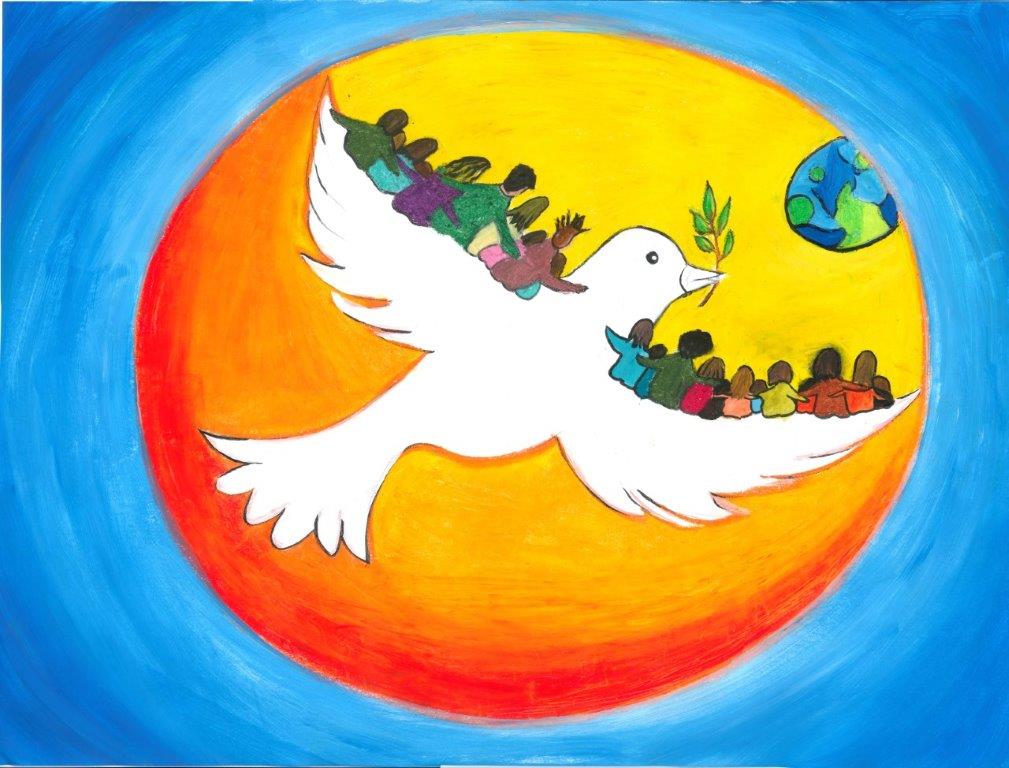Cultural exchange is an evolving phenomenon that encapsulates the sharing of traditions, languages, and ideas among diverse groups. Today, its significance transcends mere tourism or language study; it delves into the profound realm of identity, empathy, and global interconnectedness. Amidst the backdrop of a rapidly globalizing world, the fascination with cultural exchange remains as potent as ever, echoing deeper societal currents and existential questions.
The allure of cultural exchange often stems from a fundamental human curiosity. Humans possess an inherent desire to understand others, to bridge the chasms of unfamiliarity. This inquisitiveness manifests itself in myriad forms—culinary experimentation, artistic collaborations, and participatory dialogue. Such interactions offer more than superficial novelty; they serve as conduits for genuine connections, unearthing underlying similarities and fostering appreciation for differences.
One cannot discuss cultural exchange without addressing its immediate context—a world characterized by unprecedented migration patterns, technological advancements, and globalized economies. The modern traveler is no longer just a passive consumer of culture; rather, they emerge as active participants in a broader dialogue. This shift in perception highlights the importance of engagement and mutual understanding, as cultures navigate the terrain of globalization, often influencing each other in unforeseen ways.
Moreover, the rise of digital platforms has revolutionized the dynamics of cultural exchange. Social media, streaming services, and online forums have dismantled the barriers of geography and accessibility. The instantaneous nature of these platforms invites individuals to partake in cultural dialogues from the comfort of their homes. For instance, through virtual reality and online collaborations, artistic expressions can traverse continents, allowing for a synthesis of cultural narratives that might otherwise remain isolated.
Yet, while the democratization of cultural exchange through digital mediums fosters opportunities, it also presents challenges. The phenomenon of cultural appropriation, where elements of one culture are adopted by another without understanding or respect, amplifies tensions within communities. This appropriation often strips away the nuances embedded within cultural symbols, leading to commodification. Thus, a delicate balance must be struck between appreciation and respect—drawing lines that honor the origins and meanings vested in cultural artifacts. Understanding the historical contexts from which cultures emerge can illuminate the complexities involved in cultural exchange.
Cultural exchange operates on multiple levels, from personal interactions to institutional collaborations. Educational programs that facilitate exchange—such as study abroad initiatives or international partnerships between universities—play a pivotal role. These programs are not merely academic endeavors; they embody the exchange of worldviews, peppering participants with a multi-dimensional understanding of their global peers. They contribute to the cultivation of global citizens who are equipped to address transnational challenges collaboratively.
The pursuit of understanding fueled by cultural exchange is also intrinsically linked to empathy. When individuals immerse themselves in a culture different from their own, they gain insights into lived experiences that may starkly contrast with their preconceived notions. Narratives shared during exchanges often encompass stories of resilience, struggle, and hope—reminders that, despite varied backgrounds, the human experience bears striking similarities. This empathetic understanding is critical in combating xenophobia and fostering a more inclusive global community.
Art—the universal language—often serves as a pivotal link in cultural exchange. The amalgamation of artistic traditions creates new genres, challenging conventions and redefining cultural identities. Consider the fusion of hip-hop with traditional music forms across the globe; this intersection not only enriches the artistic landscape but also conveys narratives of societal issues, bridging gaps between generations and geographies. Celebrating the dynamism of artistic exchange underscores its role as a catalyst for social dialogue and transformation.
However, the implications of cultural exchange extend beyond the arts and education. They permeate into social activism and environmental stewardship. Local and indigenous voices have become key players in the global discourse on climate change, leveraging their cultural heritage to advocate for sustainable practices. The resurgence of traditional ecological knowledge serves as a reminder that, often, localized solutions rooted in cultural understanding can offer innovative responses to global issues.
As cultural exchange flourishes, it aligns itself with the pursuit of sustainable development goals. Initiatives promoting fair trade, ethical tourism, and community-driven projects illustrate a growing awareness of the interdependence between culture and the environment. Honoring cultural diversity and heritage becomes essential to fostering sustainable practices, as these dimensions are inextricably linked to the very ecosystems on which they depend.
In conclusion, cultural exchange today encapsulates a rich tapestry of interactions shaped by curiosity, empathy, and the challenges of a globalized world. As cultures collide and converge, they enrich one another, fostering understanding and expanding horizons. Yet, this dance of exchange demands vigilance, respect, and critical engagement to avoid the pitfalls of appropriation. Moving forward, it is imperative to cultivate cultural exchanges that honor the past while envisioning a more harmonious future. An enriched understanding of the interconnectedness of human experiences can inspire individuals and communities across the globe to reciprocate the hospitality inherent in cultural exchange, nurturing a more inclusive, empathetic, and resilient world.
